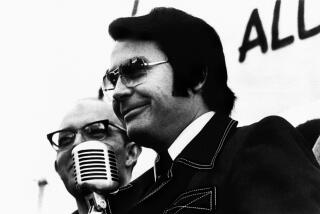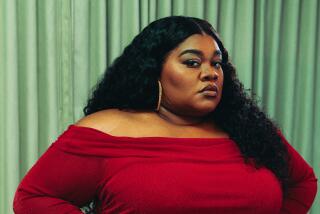Netflix’s new true-crime series, ‘The Keepers,’ is no ‘Making a Murderer,’ it’s better
Sister Cathy Cesnik went missing on Nov. 7, 1969. Two months later, her body was found in a field not far from her apartment. Nearly five decades later, the murder of the young nun and high school teacher remains unsolved.
The Netflix seven-part documentary series “The Keepers” looks at one of Baltimore’s most vexing cold cases through the eyes of the women who continue to push for justice for Sister Cathy: Her former students at Archbishop Keough High School.
Now in their 60s, Gemma Hoskins and Abbie Schaub have spent decades trying to get to the bottom of the murder of their beloved teacher Sister Cathy, who was 26 at the time of her death. But as “The Keepers” shows, the unsolved case has wider implications than your average whodunit.
The school has since become the focus of dozens of allegations of repeated sexual abuse in the ’60s and ’70s by its chaplain, Rev. Joseph Maskell, and other members of the clergy. Days before her death, Sister Cathy vowed she was going to fix the problem. Did she pay the ultimate price for trying to protect the girls?
The series lays out a number of compelling theories in seven hourlong episodes, all due for release Friday on the streaming service.
Full Coverage: Television reviews »
“The Keepers” is already garnering comparisons to Netflix’s 2015 breakthrough docu-series, “Making a Murderer.” Both productions focus extensively on one crime, delving deep into the lives of the people and circumstances behind the headlines. They purport to shine a light into otherwise dark corners while giving viewers the chance to amateur sleuth.
But that’s where the similarities end.
“Making a Murderer,” about the questionable conviction of Steven Avery in the rape and murder of Teresa Halbach, prompted a national debate regarding his innocence. But it was heavily criticized for leaving out crucial facts that might have poked holes in the series’ clear assertion that Avery had been railroaded. And as production values go, it was sloppy in comparison to “The Keepers.”
Directed by Ryan White (“The Case Against 8,” “Good Ol’ Freda”), “The Keepers” is much more sophisticated and well-researched, offering several different probabilities throughout its seven episodes as to what happened to Sister Cathy. It also aims to solve a murder rather than set a convicted murderer free. It’s executed with empathy, but not to the point where “The Keepers” lets a foregone conclusion drive the narrative.
Dozens of sources appear in “The Keepers” — Sister Cathy’s former pupils, former priests, former nuns, police detectives, journalists and attorneys. Their stories and observations are painstakingly woven together. The result is an investigative series that is as suspenseful as it is horrific and moving.
At the core of “The Keepers” is the story of a woman who was only known as “Jane Doe” when she came forward in the 1990s with allegations of serial abuse at the hands of Maskell and other men he invited in to molest and rape the high schooler.
Doe, who later revealed her identity as Jean Hargadon Wehner, says she repressed her memories of abuse for years until they finally came bubbling up in her 40s.
And that’s when she connected Maskell to Sister Cathy’s death.
Hargadon Wehner remembered that Maskell drove her to the dead body of Sister Cathy to show the student “what happens when you say bad things about people.” It drove her into a decade’s-long, terrified silence.
The guilt was immense, she says. “I spent a lot of years asking myself ‘Why didn’t I do something sooner?’”
Deepening the mystery, “The Keepers” explores the idea that the 1969 homicide may be tied to the case of another young woman who was found murdered within four days of Sister Cathy’s disappearance and within the area. Her killing also remains unsolved.
The series poses difficult questions about Baltimore’s archdiocese and exposes disturbing truths about the lengths the religious institution went to in order to protect Maskell.
Maskell’s tight relationship with the police department — he was police chaplain for Baltimore City and county, his brother was an officer — also raises questions regarding how that association may have influenced the investigation into Sister Cathy’s murder.
In interviews with former pupils who also claim to have been abused by the high school chaplain, the series uncovers a queasy pattern of breached trust and flagrant abuse of power, and it’s painful to relive with the women featured in the series. But they say speaking out is part of the healing process. “The Keepers” is the abused seeking justice for themselves and the nun who once tried to help them.
‘The Keepers’
Where: Netflix
When: Any time, Friday
Rating: TV-MA (may be unsuitable for children under the age of 17)
More to Read
The complete guide to home viewing
Get Screen Gab for everything about the TV shows and streaming movies everyone’s talking about.
You may occasionally receive promotional content from the Los Angeles Times.







